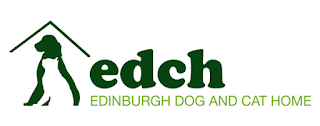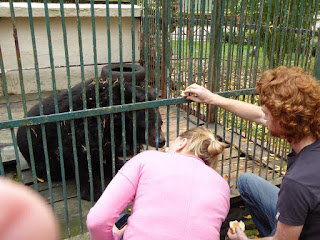The Edinburgh Dog and Cat Home has a long-standing
relationship with the R(D)SVS. Founded in 1883, the home offers shelter to any
dog or cat needing a refuge, actively reuniting lost animals with their
owners, and rehoming stray animals where possible. The Home also offers a unique
teaching and learning experience for our vets of the future, allowing them
access to understand more about dog and cat behaviour, health and welfare.
At the JMICAWE we’re very excited to be working with the
EDCH on a new project in dog behaviour and handling, to support volunteers and
new staff in their interactions with dogs at the shelter. This collaboration
will allow staff and volunteers at the Home to further develop their skills in
dog behavioural assessment, and provide students on our MSc and UG teaching
programmes with experiences of ‘real-life’ shelter situations.
Additionally two of the JMICAWE staff, Hayley and Heather,
are joining with other colleagues at the R(D)SVS as part of the University’s ‘Big
Leap’ initiative to fundraise for the EDCH by climbing the equivalent height of
the UK’s 3 peaks in 6 hours at the CSE. This will be a marathon 1 climb every 6
minutes per person for 6 hours!
Please help us to support the great work of the EDCH, and sponsor us in this exhausting venture at
You can learn more about the EDCH at:








